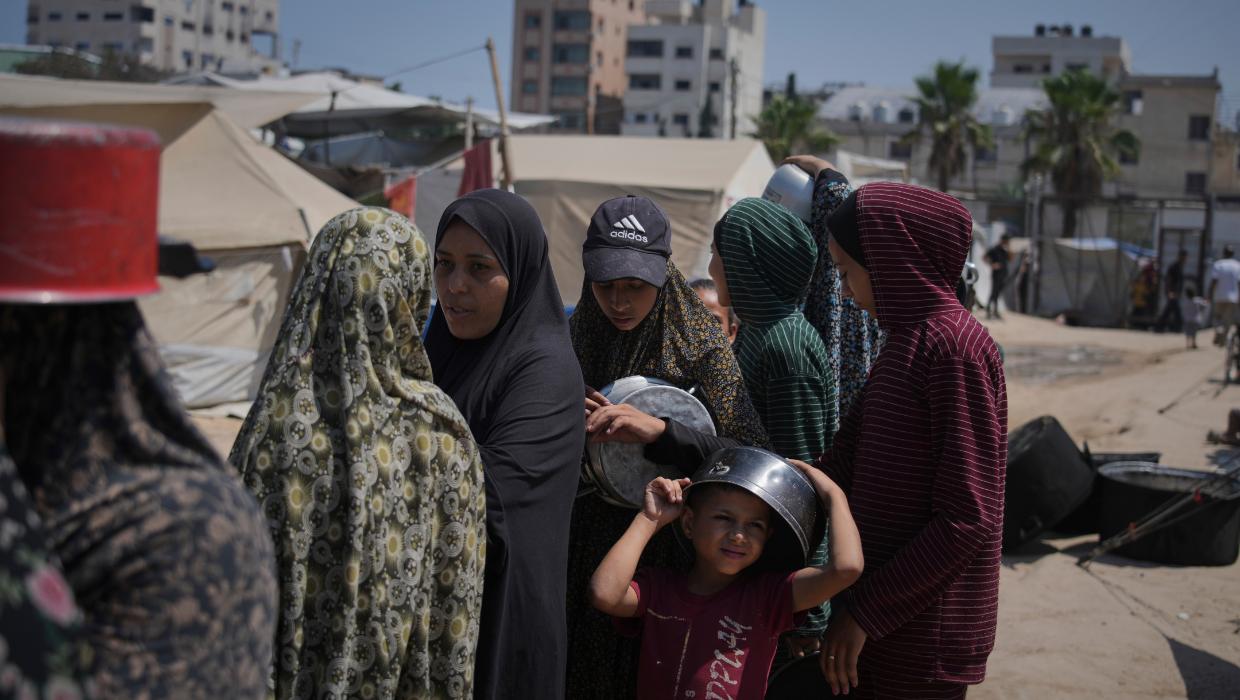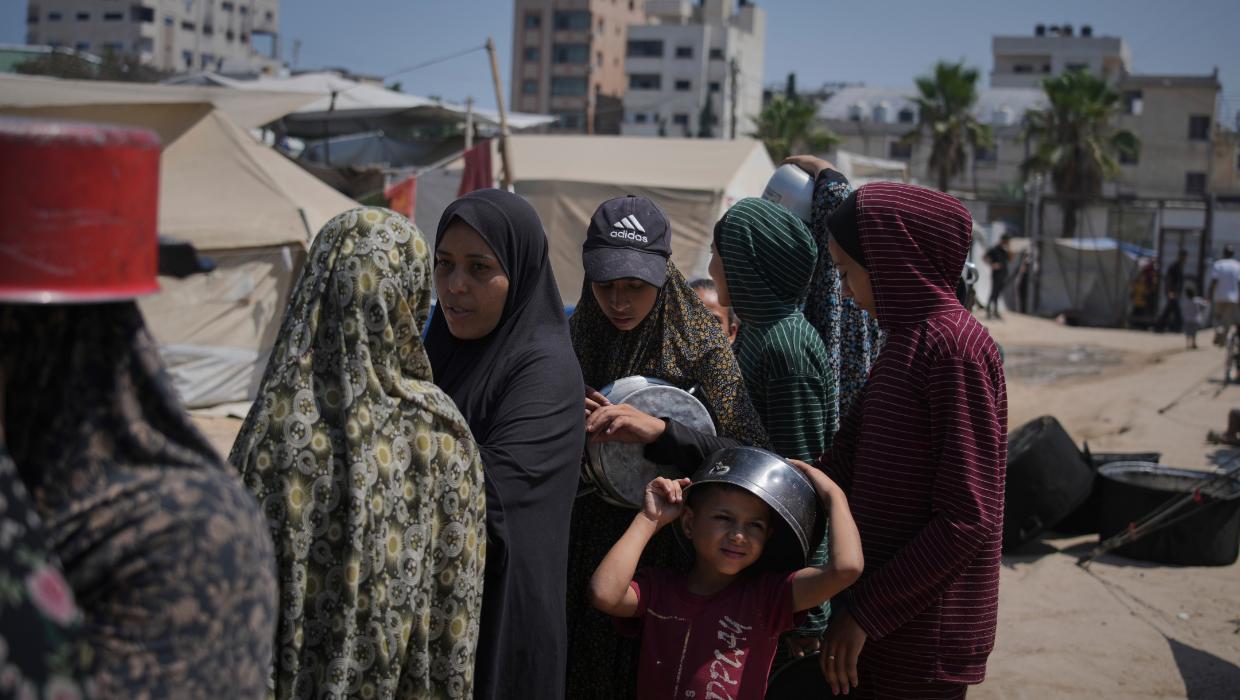Politics
Over 15,000 Māori and Moriori Heritage Items Found Abroad

More than 15,000 cultural heritage items belonging to Māori and Moriori communities are believed to be held in museums and universities around the world. This revelation comes from Arapata Hakiwai, the Kaihautu of Te Papa Tongarewa, the national museum of New Zealand, located in Te Whanganui-a-Tara (Wellington). Hakiwai’s insights highlight a significant issue concerning the repatriation of indigenous artifacts and the need for cultural heritage to return to its rightful owners.
Hakiwai’s journey in the museum sector commenced in 1998, following an encouragement from academic Sir Hirini Moko Mead. Initially taken aback by the complexities of the role, he quickly recognized that the museum’s approach to Māori and Moriori artifacts needed transformation. He emphasized the historical context in which many items were taken, noting that “Māori and Moriori ancestors, hundreds, thousands of them were taken, traded, swapped, exchanged, sold to other museums.”
Through extensive research, Hakiwai estimates that the number of cultural heritage pieces located in international institutions exceeds 16,000. He referenced over 33 museums in the United States and more than 30 museums in the United Kingdom that house these valuable items. The Field Museum is particularly noteworthy, with a collection of over 2,500 Māori taonga (artifacts), illustrating the magnitude of cultural heritage dispersed globally.
Hakiwai expressed concern that the majority of Māori and Moriori individuals remain unaware of the extent of their cultural heritage held overseas. “The sad reality is over 95 percent wouldn’t know of that, wouldn’t be aware of the extent of that or where their taonga are,” he stated. He argued that access to this information should be viewed as a right rather than a privilege.
The Karanga Aotearoa repatriation programme, initiated in 2003, focused initially on the return of human remains. Hakiwai noted a shift in the international museum community, with many institutions now agreeing to return these ancestral remains. “Many museums are realizing the old practice of ‘amassing treasures’ can’t continue,” he explained, highlighting a growing awareness of the ethical responsibilities museums have toward indigenous cultures.
The impact of the 1984 Te Māori exhibition resonates strongly, as it changed the dynamics between Māori communities and overseas museums. Hakiwai pointed out that the Field Museum was the last venue to host this exhibition, which catalyzed further collaborations, including the restoration of the 19th-century wharenui (meeting house) Ruatepupuke. Originally built in 1881 in Tokomaru Bay, this important cultural structure was moved to the Field Museum through Germany and remains one of the few wharenui outside of New Zealand.
In the 1990s, Hakiwai played a vital role in the restoration of Ruatepupuke after elders from Tokomaru visited him in Wellington. They expressed their wish to “re-clothe” the whare, emphasizing its cultural significance. Rather than repatriating it immediately, the elders chose to collaborate with the Field Museum, demonstrating a commitment to maintaining connections and honoring the wharenui’s legacy.
Hakiwai believes that museums can serve a higher purpose by supporting and uplifting cultural identity. He stated that if iwi (tribes), hapū (sub-tribes), and whānau (families) desire the return of their taonga, Te Papa will work with them to facilitate this. “Having taonga back in their community, in their whenua (land) amongst their people, elevating the histories and their mana (prestige) and significance—surely that’s something far greater than taonga sitting on a shelf,” he remarked.
The ongoing dialogue about cultural heritage, repatriation, and the role of museums reflects a broader conversation on reconciling historical injustices and fostering partnerships with indigenous peoples. Hakiwai’s insights emphasize the need for museums to evolve beyond traditional practices and actively engage with the communities they represent.
Politics
New Zealand’s Foreign Policy Divided Amid Gaza Crisis

The ongoing crisis in Gaza has prompted calls for action from foreign policy experts in New Zealand, yet opinions diverge on the appropriate response. As the humanitarian situation deteriorates, experts emphasize the urgency of New Zealand’s involvement, highlighting differing perspectives on how best to proceed.
New Zealand’s Ministry of Foreign Affairs and Trade (MFAT) recently stated that the government is closely monitoring developments in Gaza. The crisis, marked by significant civilian casualties and widespread destruction, has raised concerns about human rights violations. According to reports from the United Nations, the conflict has resulted in over 10,000 deaths since hostilities reignited earlier in October 2023.
Calls for Diplomatic Engagement
Several foreign policy experts advocate for a diplomatic approach. They argue that New Zealand should leverage its international relationships to encourage dialogue between conflicting parties. Dr. Sarah Thompson, a senior lecturer in international relations at Victoria University, noted, “New Zealand has a unique position to mediate and push for peaceful resolutions. Our voice can resonate in multilateral forums.”
The International Red Cross has also urged countries, including New Zealand, to take a proactive stance in providing humanitarian aid to the affected population. Experts recommend that the government prioritize sending medical supplies and food aid to Gaza, where access to basic necessities has become increasingly limited.
Military Involvement vs. Humanitarian Aid
In contrast, some analysts suggest that New Zealand should consider a more assertive military presence in the region. This perspective, however, has generated significant debate. Former diplomat Mark Harris argues that a military involvement could demonstrate New Zealand’s commitment to global security. “We must stand firm against aggression and show that we will not tolerate violations of international law,” he stated.
The divergence in views reflects broader discussions about New Zealand’s role in international affairs. The government faces pressure to balance its commitments to humanitarian principles with the realities of geopolitical strategy. As New Zealand navigates this complex landscape, it must also consider the potential consequences of its actions on its international reputation.
Experts agree that the government should act swiftly to address both the humanitarian needs and the underlying causes of the conflict. The Ministry of Foreign Affairs is expected to release a statement outlining New Zealand’s position and potential actions in the coming days.
In the meantime, the international community watches closely as the situation in Gaza continues to evolve. The need for a coordinated response to alleviate suffering and promote peace has never been more critical. New Zealand’s decision will not only impact its foreign policy but also the lives of countless individuals caught in the crossfire of this ongoing crisis.
Politics
New Zealand Experts Call for Action Amid Gaza Crisis Debate

The ongoing crisis in Gaza has prompted urgent discussion among foreign policy experts in New Zealand, who are advocating for government action. Their views, however, differ significantly on the best course of response as the humanitarian situation escalates.
One perspective emphasizes the need for immediate humanitarian aid. Experts argue that New Zealand should increase its support for organizations providing relief in Gaza. They highlight the dire conditions faced by civilians, with reports indicating that over 1,000 lives have been lost since the conflict intensified in early March 2024. This group underscores the moral obligation of nations to assist those in distress, especially as international attention remains focused on the region.
Conversely, another camp of experts believes that New Zealand’s response should prioritize diplomatic engagement rather than direct aid. They suggest that the government should work with international partners to promote a ceasefire and encourage negotiations between conflicting parties. This viewpoint stresses that while humanitarian efforts are vital, a sustainable resolution can only be achieved through diplomatic channels.
In light of these differing opinions, New Zealand’s foreign policy remains under scrutiny. The government has yet to announce a definitive course of action, leading to speculation about its priorities in addressing the crisis. Political analysts point out that public opinion is also divided, with some citizens calling for immediate intervention while others advocate for a more cautious approach.
As discussions continue, the New Zealand government faces the challenge of balancing domestic expectations with its international commitments. The crisis in Gaza has drawn attention to the country’s foreign aid policies, raising questions about how they align with New Zealand’s values and principles on the global stage.
March 2024 is shaping up to be a pivotal month for New Zealand’s foreign relations. With the situation in Gaza worsening, the government’s decisions could have lasting implications for its standing in international affairs. The need for clear and decisive action has never been more pressing, as the world watches how New Zealand navigates this complex landscape.
In summary, the debate among foreign policy experts reflects the broader tensions faced by governments worldwide as they respond to crises. New Zealand’s approach will likely influence its international relationships and the effectiveness of its humanitarian efforts in Gaza. As experts continue to voice their opinions, the urgency of the situation demands careful consideration and prompt action from officials.
Politics
Wellington Dancers Challenge Employment Status, Court Orders Compliance

Seven dancers from the Wellington Calendar Girls club are pursuing a case in the Employment Court to clarify their employment status, following a series of events that have raised significant concerns regarding their rights and safety. The women are seeking a declaration that they are employees rather than independent contractors, which would entitle them to greater legal protections under the Employment Relations Act 2000.
The situation escalated in 2023 when the dancers attempted to negotiate collectively for better working conditions after receiving a contract they deemed “manipulative.” Subsequently, nineteen dancers were dismissed via a Facebook post, instructed to clear out their lockers and not return to work.
Legal Proceedings and Non-Publication Orders
In response to their circumstances, the seven women filed for a non-publication order to protect their identities due to fears that exposure could harm their employment, housing opportunities, and personal safety. A ruling from Chief Employment Court Judge Christina Inglis granted this order in May 2023, suppressing their identities to mitigate the stigma associated with their profession.
Judge Inglis emphasized the urgency of the situation, stating, “I accorded urgency to the application given the nature of the alleged breaches and the concerns that had underpinned the making of the orders of non-publication in the first place.” An urgent hearing was scheduled for the week of the application, but it was cancelled after both parties agreed to respect the non-publication orders.
The judge confirmed, “The defendants confirm that they have removed all offending posts,” although no details were provided regarding the specific content of those posts.
Concerns About Safety and Reputations
During the proceedings, the women outlined several concerns regarding the potential repercussions of their identities being made public. They typically use stage names while working, avoiding the use of their real names to protect their privacy. However, their legal case has been presented using their actual names, leading to heightened anxiety about societal judgments and discrimination.
One dancer, who is a member of a church, expressed fear about the potential backlash from her congregation, while others have reported negative impacts on their housing applications. One woman was even dismissed from a government position upon it being disclosed that she had worked in the sex industry.
The women, all young, articulated their worries about how the stigma surrounding their profession could severely damage their reputations and affect their families. They also cited safety concerns regarding interactions with former clients and the public.
In a recent ruling, Judge Inglis issued orders preventing Calendar Girls from disclosing any identifying information about the women involved in the case. This directive applies to “all forms of communication, including oral, written, electronic, and any other medium.”
The substantive case is scheduled for a five-day hearing in February 2026, which will address the broader implications of their employment status and the treatment they have received.
Calendar Girls NZ Ltd operates clubs in various locations, including Christchurch, Auckland, Wellington, and Queenstown, and the outcome of this case could set a significant precedent for workers in the adult entertainment industry across New Zealand.
Politics
New Electoral Laws Prompt Concerns Over Voter Accessibility

The New Zealand government is set to implement significant changes to its electoral laws, raising questions about the impact on voter accessibility ahead of the upcoming general election in 2024. Voters will have a twelve-day advanced voting period during which they must ensure their enrollment details are correct, as no changes will be accepted once this period begins.
The initiative has sparked debate, particularly regarding its timing and implications. According to statistics, in 2023, approximately 134,000 individuals changed their addresses or electorates during the advanced voting period, while nearly 100,000 people enrolled to vote. These figures indicate that many voters may not be fully prepared for the new regulations, which could hinder participation.
Paul Goldsmith, New Zealand’s Minister of Justice, is advocating for these changes, citing the need to reduce the administrative burden on the Electoral Commission. However, officials have cautioned that these amendments could potentially decrease voter enrollment rates and turnout, as well as increase the number of disallowed votes.
Concerns About Accessibility and Participation
Critics argue that making the voting process more complex could disenfranchise many citizens. Francesca Rudkin expresses concern that these changes prioritize administrative efficiency over voter accessibility. She emphasizes that voting should be made as accessible as possible to ensure that all New Zealanders can exercise their democratic right.
Goldsmith contends that the changes will result in faster election outcomes by minimizing the processing of special votes. However, critics question whether the speed of results should take precedence over ensuring that every eligible voter has the opportunity to participate. The call for educational campaigns on the new rules is seen as insufficient, particularly given the high number of individuals who may not be aware of the changes.
The Electoral Commission has noted that the current system, which allows for last-minute changes, places a significant burden on election administration. As David Seymour pointed out, voters must take responsibility for their registration and ensure that they are informed. Yet, the concern remains that those who are less organized may be disproportionately affected by these new rules.
Goldsmith faces a challenging task as he navigates the balance between administrative efficiency and voter engagement. The upcoming election will serve as a crucial test of these changes, with the potential for significant implications on voter turnout and representation in Parliament.
As the nation prepares for the 2024 General Election, it is essential for voters to understand the new regulations and ensure their enrollment details are accurate well in advance of the election date. Failure to do so could lead to a reduction in participation, undermining the democratic process that the government aims to uphold.
-

 Politics2 weeks ago
Politics2 weeks agoDavid Seymour Proposes Fast-Track Law for New Supermarkets in NZ
-

 Entertainment2 weeks ago
Entertainment2 weeks agoGeorge Calombaris Opens Up About Alcohol Struggles After Scandals
-

 Top Stories2 weeks ago
Top Stories2 weeks agoTragic Crash Claims Three Lives on Masters Rd Near Waiuku
-

 World2 weeks ago
World2 weeks agoDaughter Accused of Murdering Mother in Khandallah Home
-

 World2 weeks ago
World2 weeks agoCoalition Leaders Address UN Rapporteur’s Criticism, Clarify Response
-

 World2 weeks ago
World2 weeks agoKalyn Ponga Explores Future Options Amid Newcastle Knights Struggles
-

 World2 weeks ago
World2 weeks agoDriver High on Magic Mushrooms Crashes with Child in Car
-

 Top Stories2 weeks ago
Top Stories2 weeks agoTauranga Airline Suspended After Safety Concerns Arise
-

 Health2 weeks ago
Health2 weeks agoWoman’s Missing Engagement Ring Found in Waiuku Mudflats
-

 Business2 weeks ago
Business2 weeks agoSouth Waikato Trades Training Centre Faces Closure Proposal
-

 World2 weeks ago
World2 weeks agoQueenstown’s The Rees Hotel Fined $22,000 for Illegal Crayfish Sales
-

 Top Stories2 weeks ago
Top Stories2 weeks agoBlues Consider Move to Mt Smart in Search of Better Attendance

















